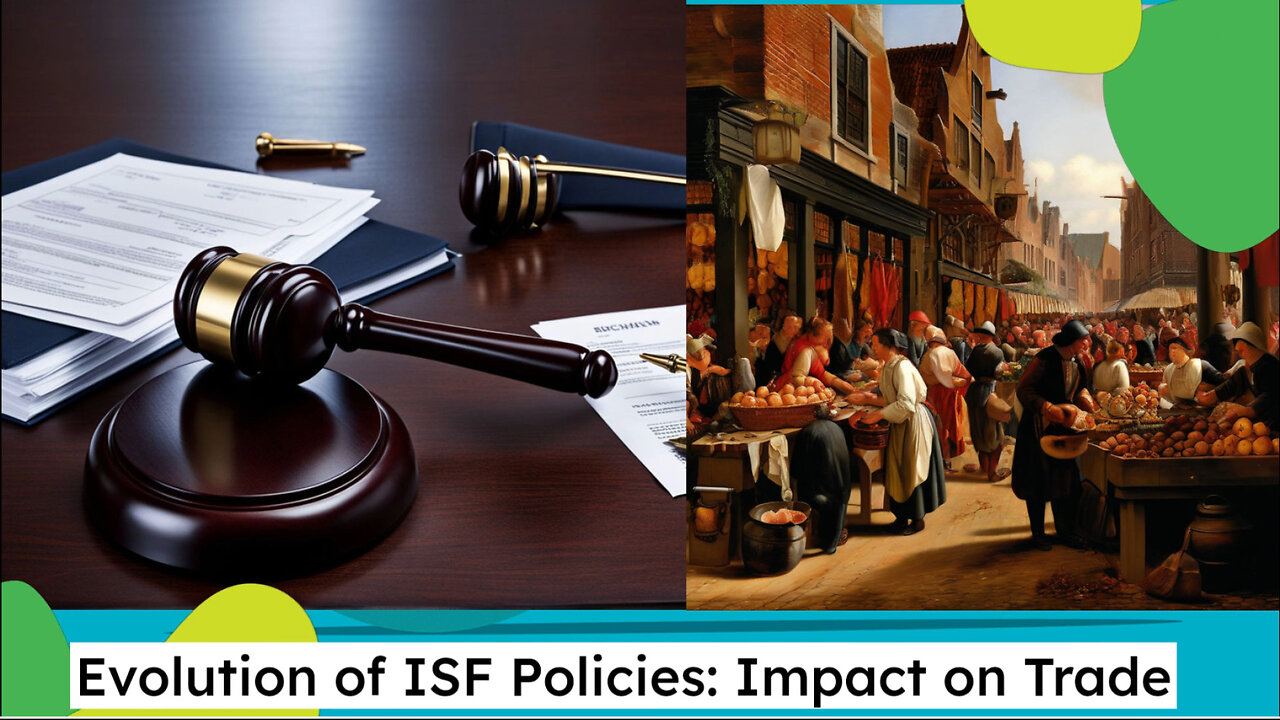Premium Only Content

Unlocking Global Trade: The Evolution of ISF Policies
ISF Template | 562-453-7357 | isf@isftemplate.com | www.isftemplate.com
The evolution of ISF policies has had a profound impact on the international trade landscape. Since its introduction in 2009, the Importer Security Filing (ISF) program has continuously evolved to enhance the security and efficiency of inbound shipments. Initially implemented for risk assessment purposes, the ISF program required importers to submit ten data elements before their shipments arrived at US ports. However, the requirements became more stringent over time, with the full implementation of ISF enforced in 2010 and the introduction of monetary penalties for non-compliance.
In 2016, the ISF program was expanded with the introduction of the 10+2 rule, which required importers to provide ten data elements, and ocean carriers to submit an additional two data elements related to the shipment. This expansion aimed to gather more information about the parties involved in the shipment and any potential security risks. Moreover, in 2018, the ISF-5 filing requirement was introduced, necessitating additional information for shipments involving goods subject to specific Partner Government Agency (PGA) regulations.
Advancements in technology have also played a vital role in the evolution of ISF policies. The Automated Commercial Environment (ACE) platform, developed by the US Customs and Border Protection (CBP), has provided importers with a secure electronic portal to submit their ISF information, facilitating efficient processing and analysis of data. This development has ensured better risk management and targeting of high-risk shipments.
Looking ahead, it is anticipated that ISF policies will continue to evolve to address changing security concerns and leverage advancements in technology. The CBP is likely to introduce more sophisticated risk assessment tools and enhance data sharing with other government agencies to ensure comprehensive security screening. By continuously evolving, ISF policies will contribute to a safer and more efficient international trade environment.
#usimportbond #isfcustomsbroker #uscustomsclearing #isfentry
Video Disclaimer Here: This video is designed for education and is unaffiliated with US government bodies.
0:40 - ISF program history began in 2009 under SAFE Port Act
1:12 - ISF requirements became stricter over time for supply chain security
1:33 - CBP enforced full ISF implementation with penalties in 2010
2:11 - Importers required more information like seller's address and stuffing location
2:37 - ISF program expanded in 2016 with 10+2 rule
2:56 - ISF-5 filing requirement introduced in 2018 for specific agency regulations
3:15 - ACE platform developed for secure electronic ISF submissions
3:46 - Future ISF policies expected to evolve with technology and security concerns
-
 LIVE
LIVE
Pop Culture Crisis
1 hour ago'SUPERMAN' Box Office TROUBLE? 'Harry Potter' Actor Calls You Racist, Sydney Sweeney MID? | Ep. 873
511 watching -
 LIVE
LIVE
LadyDesireeMusic
24 minutes agoMake Ladies Great Again | Piano Music
74 watching -
 1:21:52
1:21:52
Russell Brand
3 hours agoFighting the Devil and Winning – Bas Rutten on Faith, Demons, and Discipline - SF611
155K17 -
 10:00
10:00
MattMorseTV
21 hours ago $2.65 earnedTrump isn't TAKING the BAIT.
18.7K26 -
 LIVE
LIVE
Barry Cunningham
3 hours agoPRESIDENT TRUMP IS MAKING IT APPEAR THAT THE STORM IS UPON US!
1,954 watching -
 LIVE
LIVE
StoneMountain64
2 hours agoDelta Force PRISON MAP is insane (+ NEW KNIFE Desmoulins' Edge)
83 watching -
 LIVE
LIVE
Viss
4 hours ago🔴LIVE - PUBG's Revival is Underway - Learn The Tactics You Need!
99 watching -
 LIVE
LIVE
Jeff Ahern
1 hour agoNever Woke Wednesday With Jeff Ahern
121 watching -
 LIVE
LIVE
Crypto Power Hour
6 hours agoCrypto Trends Influencing The Market
44 watching -
 8:12
8:12
Silver Dragons
1 hour agoWill Gold & Silver Ever Become WORTHLESS?
2.95K